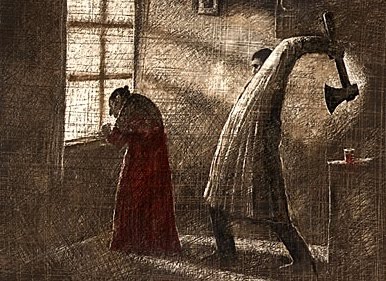I read once that people who don’t study history are doomed to repeat the mistakes of the past, while people who do study history are doomed to sit by helplessly and watch everyone else repeat the mistakes of the past.
Yesterday we saw a headline about a diplomat being assassinated in Turkey. The response from my personal little echo chamber felt more or less consistent: haven’t we seen this movie before? It’s the one where Europe and the US recede into a landscape of bitter nationalism and an assassination in the Balkans tips the first domino in a series of dominoes that leads to a war of unprecedented scale and technology improves tactics much more quickly than strategy and a lot of people die. It starred that guy who’s not Jake Gyllenhaal but that you always confuse with him.

And who knows? Maybe it’s not that big a deal. But this is far from the first time the last few months have made us feel squeamish, nervous, and chillingly familiar. (Remember a few weeks ago when CNN hosted a discussion of whether or not Jews are people?)
This all feels familiar because it is, but we remember history with the benefit of hindsight. When we look now at the underpinnings of WWI, it’s easy to slap our heads and lament that they didn’t see it coming. There isn’t any need to think about nuance, because we know exactly (plus/minus some whitewashing here and there) what happened.
The past several months have felt familiar because they’ve been presented the same clear cut way. The presidential campaign skipped over substantive policy discussions in favor of monosyllabic adjectives: great, sad, smart, best. The very real nuance of policy gave way to concepts that we’re more comfortable with: right and wrong. Good and bad.
If any of this feels familiar, it’s because you have seen this movie before, and that movie was probably written for children. Like, The Lion King, or something. The national conversation, in both echo chambers, has framed our current setting as a battle between good and evil. The candidates in 2016 were not flawed humans doing their best, but caricatures of ideologies, packaged with childproof lids and choking warnings.
Each side saw its candidate is Simba, the other candidate as Scar. Each side sees itself not only as a champion for Good, but, importantly, without faults. (I think we can all, regardless of political affiliation, agree that Tim Kaine is definitely Pumba in this analogy.) In a children’s movie the heroes are perfect and the villains are perfectly villainous. This premise of clarity bleeds from entertainment (whether it’s The Lion King, or 24, or Homeland) into life and poisons the reality that even in history nothing is clear. Remember CNN’s analysis segment that categorized news stories as “good things” and “bad things?”
So, yeah. We’ve seen this movie before. And as the lines between governance, news, and entertainment blur we’ll continue to see complex geopolitical issues distilled into “Good” and “Bad.”
But it’s not enough to just blame the news media. They’re selling what we’re buying. So quit it. Stop sharing whackjob conspiracy theories from Huffington Post and the Blaze. Admit, if only to yourself, that Democracy Now! is a fake thing. Acknowledge that our choices of fiction and entertainment shape the lens through which we see the world. Hell, read some Dostoevsky.
We owe it to each other to come together and agree that not only are things not black and white, there are a hell of a lot more than fifty shades of grey.
How to be a Skier
The topics covered here frequently assume a certain level of familiarity with skiing and ski culture, and I understand that this can be alienating for some ... Read more
Do you work for a living? Or are you in the outdoor industry?
Somewhere in New York a ball is waiting to drop. In a couple of days, they'll hoist that gaudy thing to the top of 1 ... Read more


